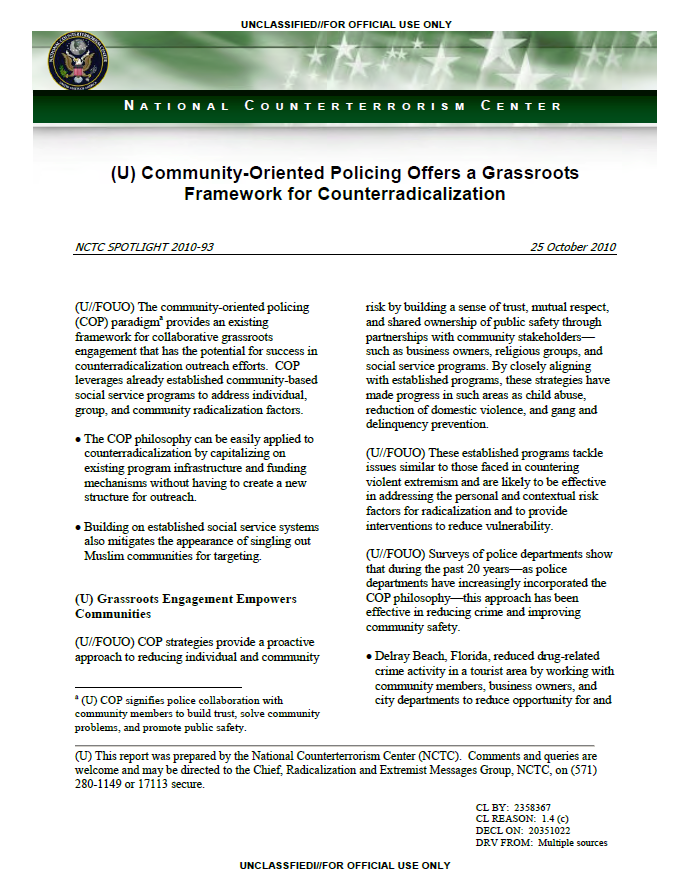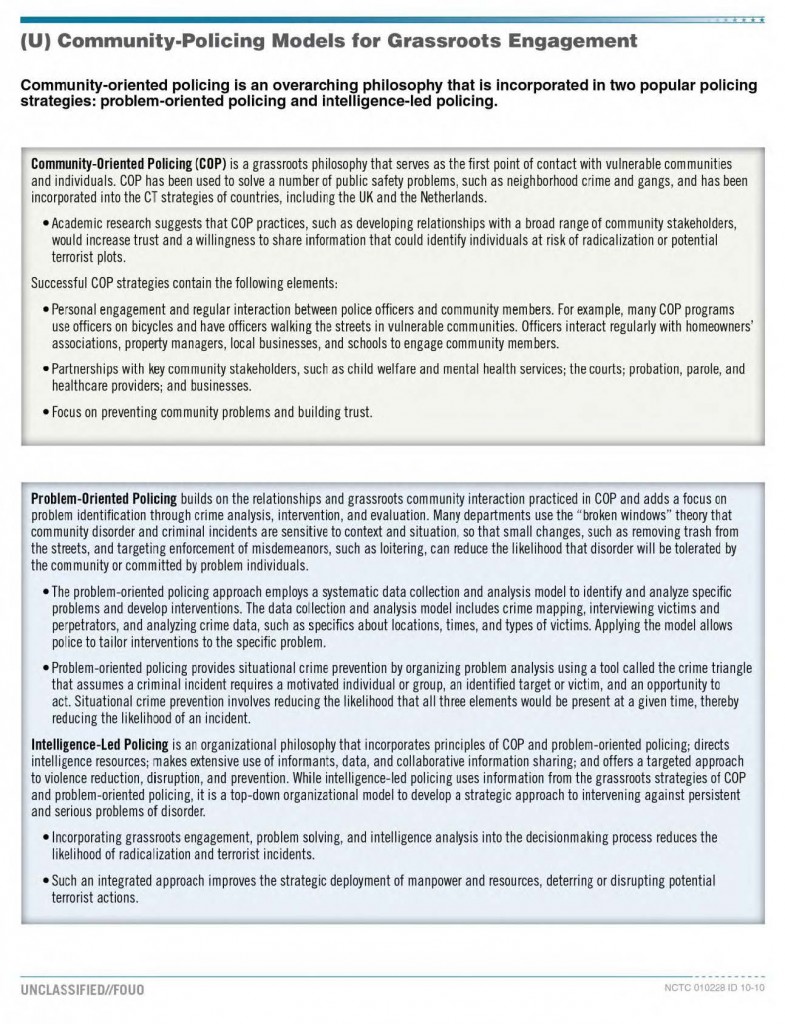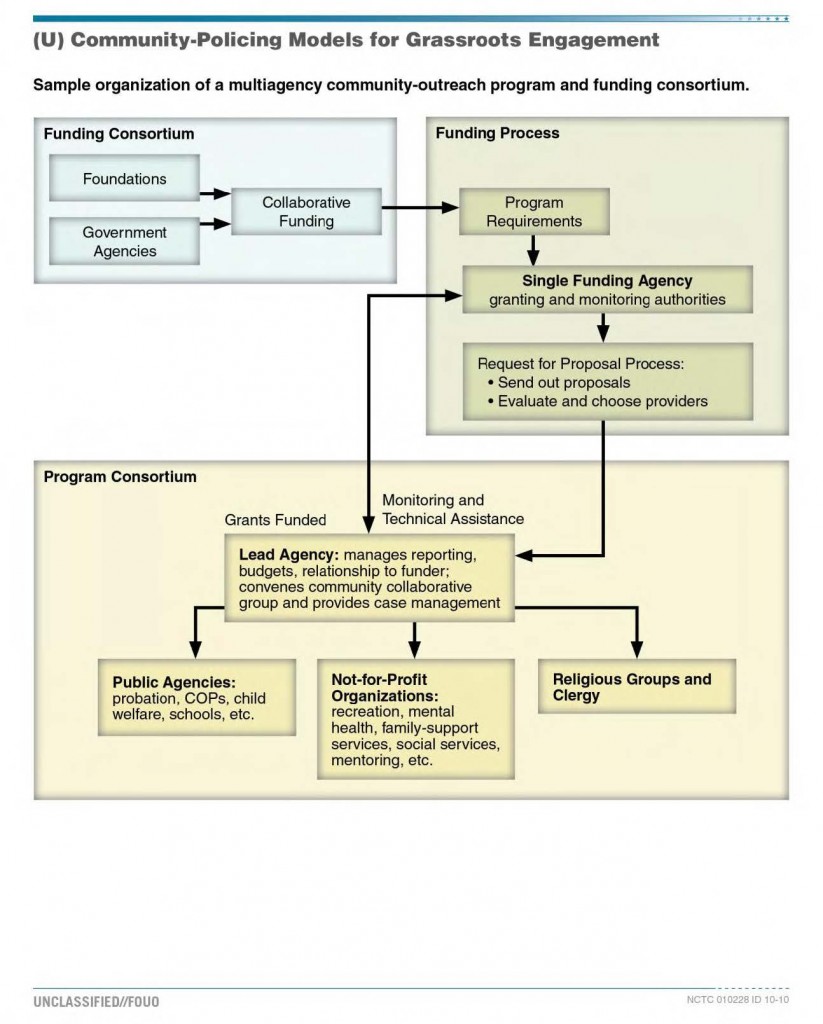(U//FOUO) The community-oriented policing (COP) paradigm provides an existing framework for collaborative grassroots engagement that has the potential for success in counterradicalization outreach efforts. COP leverages already established community-based social service programs to address individual, group, and community radicalization factors.
The COP philosophy can be easily applied to counterradicalization by capitalizing on existing program infrastructure and funding mechanisms without having to create a new structure for outreach.
Building on established social service systems also mitigates the appearance of singling out Muslim communities for targeting.
(U) Grassroots Engagement Empowers Communities
(U//FOUO) COP strategies provide a proactive approach to reducing individual and community risk by building a sense of trust, mutual respect, and shared ownership of public safety through partnerships with community stakeholders—such as business owners, religious groups, and social service programs. By closely aligning with established programs, these strategies have made progress in such areas as child abuse, reduction of domestic violence, and gang and delinquency prevention.
(U//FOUO) These established programs tackle issues similar to those faced in countering violent extremism and are likely to be effective in addressing the personal and contextual risk factors for radicalization and to provide interventions to reduce vulnerability.
…
(U) Applying COP Philosophy To Counter Radicalization and Violent Extremism
(U//FOUO) Since 9/11, social science researchers and police increasingly have advocated community and problem-oriented policing as effective approaches to countering radicalization and preventing extremist violence. Problem-oriented policing is a strategy that builds on the relationships and grassroots community interaction practiced in COP and adds a focus on problem identification through crime analysis, intervention, and evaluation. Academic research indicates that COP practices, such as developing relationships with a broad range of community stakeholders, increases trust and a willingness to share information that could identify individuals at risk of radicalization or potential terrorist plots.
…



